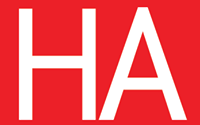A surge in demand for notebooks, tablets, laptops and headphones during the coronavirus crisis is helping Anglo-German semiconductor specialist Dialog make up for the effects of the pandemic on its core smartphone components business.
Chief executive Jalal Bagherli said the Apple supplier, which was hit by the shutdown of its largest customer’s production plants in China, was experiencing a huge increase in demand for devices used for working and teaching at home.
“Some older technologies are seeing a short-term demand surge that may continue through into Q3,” Mr Bagherli told the Financial Times, adding that they included low-cost tablets for the education and entertainment of children unable to attend school.
“While consumers may not be rushing to buy their top-of-the-range smart TV to watch the summer Olympics, instead the work-from-home environment means households going from one device to two, two devices to three, and so on,” he said.
The Frankfurt-listed manufacturer, which counts Samsung, Xiaomi, and Panasonic among its clients, focuses primarily on cutting-edge tech for portable devices, rather than less sophisticated notebook chips.
Although there was some pent-up demand in the PC notebook market due to a shortage in Intel chips last year, the coronavirus-induced surge has led to a backlog at Dialog, Mr Bagherli explained, as the parts take 16-18 weeks to make.
The former Sony executive, who has led Dialog for 15 years, also revealed that the margins for older products were sometimes even higher than its most popular, state-of-the-art components, although he did not expect the rush for notebook and tablet chips to effect the company’s overall profitability.
As well as leading to increased demand for indoor tech, the Covid-19 crisis has caused a rush on products for outdoor pursuits, Dialog said.
“One of the products we can’t ship enough of this quarter is Bluetooth low-energy chips for fitness trackers and wearables to China,” Mr Bagherli said. “Maybe people do more exercise or hikes in lockdown — they are flying off the shelf.”
The company, whose global headquarters are in Reading, but whose research locations are dotted across Europe and the US, has been attempting to diversify its portfolio, and become less reliant on Apple, which accounts for almost three-quarters of its total sales.
As the Californian giant continues to squeeze suppliers in an attempt to bring down costs, Dialog has branched out into automotive components and battery management systems. In February, it acquired Industrial Internet of Things specialist Adesto for $500m.
In addition, it has become a player in low-energy Bluetooth products, for which demand has also risen, as start-ups seek to use them to help employees maintain social distancing on factory floors. Bigger clients have also been enquiring about the technology for use in tackling Covid-19.
However, Dialog, which is still heavily reliant on the smartphone market, withdrew its guidance last month, citing a lack of visibility in the second half of the year.
One bright spot is China, where sales have recovered, and where the rollout of 5G is expected to boost sales of new handsets.

















